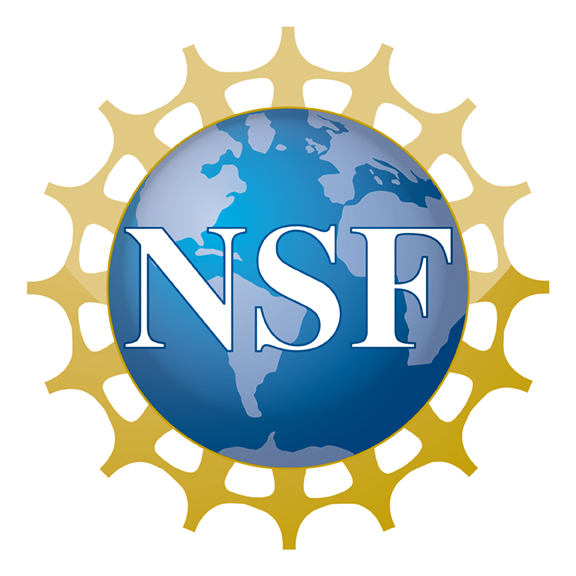Grant supports online teacher professional development, research in rural schools

The University of Rochester’s Warner School of Education was awarded a $2.8 million grant from the National Science Foundation (NSF) to provide teachers in rural school districts access to innovative online professional learning experiences in mathematics. This project is part of the Warner School's Learning in the Digital Age (LIDA) strategic initiative, a collaborative and multi-disciplinary effort to leverage new technologies and online spaces to enhance learning in K-12, higher education, and other learning environments.
The Discovery Research PreK-12 (DRK-12) program of the NSF awarded the grant, which will be under the direction of Principal Investigator Jeffrey Choppin, who serves as chair of teaching and curriculum and associate professor at the Warner School, and Co-Principal Investigator Cynthia Callard, who serves as the executive director of the Center for Professional Development and Education Reform. The four-year funding will support research of an online-based professional development model that includes synchronous online courses and online video coaching, in addition to demonstration lessons that can be viewed via online meeting software, with the goal of increasing the quality of professional development opportunities for teachers in rural areas in the United States.
Research has shown that teachers in rural areas face constraints in terms of accessing the expertise and resources needed for high-quality professional learning experiences. The project, called Synchronous Online Professional Learning Experiences for Middle Grades Mathematics Teachers in Rural Contexts, will research the efforts of the Center for Professional Development and Education Reform to bridge the gap between remote rural school communities and high-quality resources and professional development activities.
The Warner School was one of nearly 50 institutions nationwide to receive a DRK-12 Award in 2016. NSF’s DRK-12 program seeks to enhance the learning and teaching of science, technology, engineering, and mathematics (STEM) by PreK-12 students and teachers, through research and development of STEM education innovations and approaches. The NSF funding will expand the work of the Center’s mathematics education outreach team, which has designed, implemented, and offered high-quality professional learning, including work in several previous NSF-funded projects, in the region for more than 20 years.
Central to the project will be a research team, led by Choppin, who will study the online professional development activities to better understand the limitations and benefits of conducting such activities in virtual, rather than face-face, settings. The team has considerable experience conducting research in middle school mathematics classrooms, including prior projects that studied the impact of the Common Core State Standards for Mathematics, face-face teacher professional development, and the impact of digital curriculum resources. Findings from the project have the potential to inform the design of professional development in the digital age, and ultimately contribute to research on professional learning in online contexts that extend beyond K-12 education into other areas, such as higher education, the health care profession, and other domains where professional development is needed and would benefit from high-quality online opportunities.
The Center for Professional Development and Education Reform will extend prior work that led to the development of the model that will be implemented in this project. The Center has collaborated with a range of national and local mathematics education experts to develop expertise in content-focused coaching, synchronous online professional development, and professional learning to support the implementation of high-quality mathematics curriculum and instruction. More recently, they began to conduct video-based teacher coaching, which is an emerging form of professional development that has potential to reach rural teachers. The innovative model of professional learning that will be studied is a rich combination of online-based professional learning experiences, including collaborative classroom demonstration lessons, synchronous online courses, and online video coaching.
Teachers from both upstate New York and Idaho will benefit from this rich set of innovative professional learning experiences, led by Co-Principal Investigators Callard, of the Warner School, and Julie Amador, of the University of Idaho.
“This program will expand our current professional development and research efforts to reach and benefit rural teachers, who have had limited access to high-quality professional development resources and experiences in the past due to geographic isolation,” said Choppin. “This is our opportunity to further nurture the development and growth of rural educators, while also contributing to the research on online teacher professional development and establish a replicable model that can benefit larger audiences. Our ultimate goal is to influence student learning and outcomes in all areas of the country, regardless of geographical access to resources.”
The dissemination of research findings will include presentations at local and national practitioner and research conferences; publications in both mathematics and technology education journals; published descriptions of the course modules, and guidelines to help scale up the professional development model. Lastly, a newly established working conference in the final year of the grant will bring together higher education research and teaching faculty in mathematics education, experts in related fields, and K-12 school administrators from rural districts to Rochester, N.Y. to share research and practices for implementing ambitious instructional practices in rural districts nationwide.
Since its inception in 2001, the Center for Professional Development and Education Reform has partnered with organizations and institutions to improve educational practices and policies through professional learning, leadership development, and program evaluation. The Center continues to work with school districts to support professional development of mathematics teachers and to promote high-quality, systemic work in mathematics education that strengthens and improves the learning of mathematics.